Covering 100km in one go has its own challenges, but it’s a whole different ballgame when you have to run that 100km really fast, even if over three days. COACH NEVILLE outlines your training, gear, and strategy for multi-day events.

If running in the mountains for a day is your idea of bliss, then a stage race can be heaven… or hell, depending on how well you have trained and on how much attention you have given to gear, race strategy, nutrition, hydration, and recovery.
Stage races have mushroomed, offering a wide range of options, usually over two to three days (and longer) and traverse some of the most spectacular areas in the country.
But try wing a stage race and it can quickly change from heaven to hell with forlorn runners strewn across the landscape or lying prostate in the medical tent.
Build in block training
The main difference to your training is that you need to include two to three block weekends where you do slow back to back long runs to simulate race conditions.
These block weekends should ideally be spaced two to three weeks apart with the last block being three to four weeks before the stage race. For most runners, the longest training run need not equal the distance of the longest day. For instance, if the longest day is 30km then your longest run would be about 26km. Competitive runners going for podium though would run further than this distance as they plan to race for all three days.
Many stage races have huge climbs such as the 6km monsters on the Golden Gate Challenge. The best is to power walk these and conserve energy. Never fight the mountain, but flow with it. If you can, find a steep climb or stairs to practice power walking in training.
Below is a block training plan for the eight weeks before a three-day stage race. You should already be able to run 20km comfortably.
Essential gear
Good gear can mean the difference between having fun on the trails or having a miserable outing. And in a worst-case scenario, good gear will keep you alive when the weather turns bad or you are lost.
This story is from the Issue 23 edition of TRAIL.
Start your 7-day Magzter GOLD free trial to access thousands of curated premium stories, and 9,000+ magazines and newspapers.
Already a subscriber ? Sign In
This story is from the Issue 23 edition of TRAIL.
Start your 7-day Magzter GOLD free trial to access thousands of curated premium stories, and 9,000+ magazines and newspapers.
Already a subscriber? Sign In
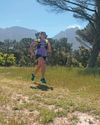
Heat Cheat
In his How Or Why series, coach SEAN TAIT, founder and Running technique coach at Off the Mark, digs deeper into specific issues troubling TRAIL readers.
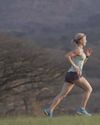
Pacing The Way To Change
Seeing a need, Jo Keppler ran 130km to raise funds for the Southern Lodestar Foundation breakfast programme on Saturday 6 November 2020.
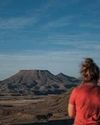
Die Ander Tafelberg(e)
Dalene van Staden developed Die Ander Tafelberge* project, recruiting Caro Jordaan and Magan Hanekom to summit all 15 Tafelberge in the Western Cape, ending with Cape Town's Table Mountain.
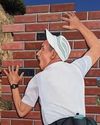
Dodge The Super Plods
We all want to get faster, not slower. But the plods are real – if we overdo our training. Stay fast with Joburg-based coach Neville Beeton.
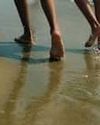
Grounding Is It The Missing Link?
Durban biokineticist Stephan Terblanche has been in private practice for almost 25 years. One of his biggest frustrations is that some patients do not get better, regardless of treatment, for unknown reasons. He believes that a lack of grounding is a major factor.

THE ALIENS ARE HERE
Why do we run? There is no simple answer.
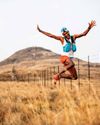
Meeting Rona
Being young and fit doesn't faze COVID-19. Salomon runner THABANG MADIBA (36) experienced this for himself.
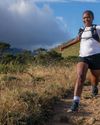
For the Love
RACHEL MANYATHI is an ultra runner and high school teacher whose life centres around kindness, and mountain adventure.
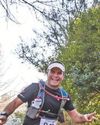
Cultivating FLOW
High-performance coach CRAIG CAROLAN shares the Tao of Mike and positive psychology to help you reach maximum gratification on the trail.
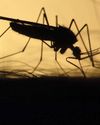
Bites & Stings
Life support medic ALET MAARTENS is a Gauteng-based trail runner with a few tips to keep you safe against summer bugs with big appetites or short tempers.